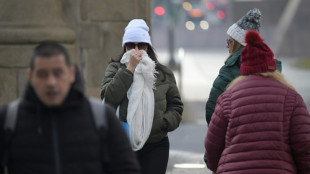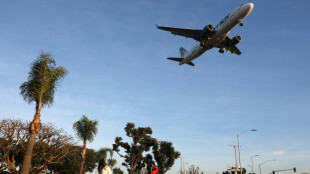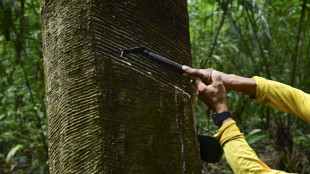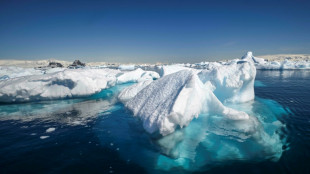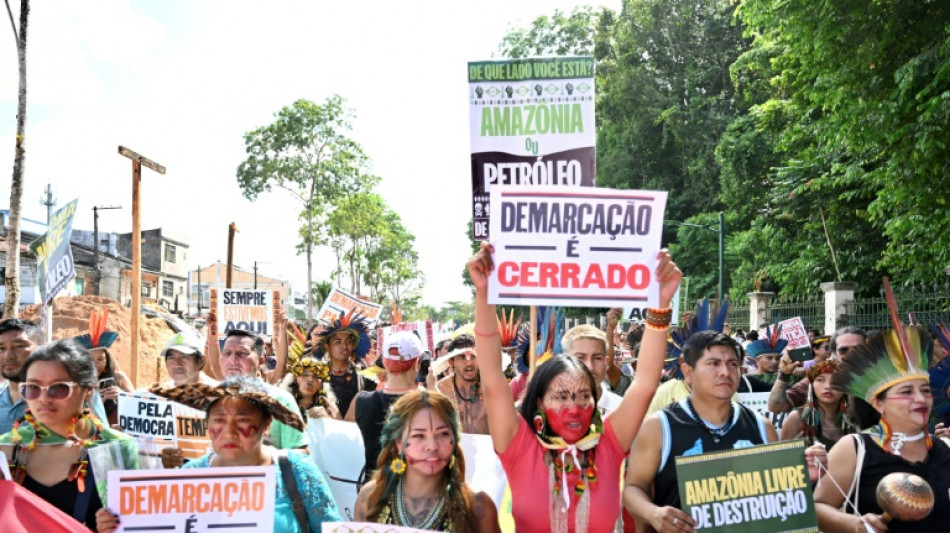

South America seeks roadmap to save Amazon at 'urgent' summit
Brazilian President Luiz Inacio Lula da Silva hosted what he called an "urgent" summit on the Amazon Tuesday, asking fellow South American leaders to chart an ambitious roadmap to save the world's biggest rainforest.
Lula vowed a "turning point" in the fight to protect the rainforest at the two-day meeting of the Amazon Cooperation Treaty Organization (ACTO) in the northern city of Belem, at the mouth of the Amazon River.
The summit opened the same day the European Union's climate observatory confirmed July was the hottest month ever recorded on Earth, and Lula emphasized the "severe worsening of the climate crisis" in his opening speech.
"The challenges of our era, and the opportunities arising from them, demand we act in unison," he said.
"It has never been so urgent."
Colombian President Gustavo Petro meanwhile urged a radical rethink of the global economy, calling for a "Marshall Plan" in which developing countries' debt is canceled in exchange for action to protect the climate.
"If we're on the verge of extinction and this is the decade when the big decisions have to be made... then what are we doing, besides giving speeches?" he said.
- 'Not enough' -
It is the first summit in 14 years for the eight-nation group, set up in 1995 by the South American countries that share the Amazon basin: Bolivia, Brazil, Colombia, Ecuador, Guyana, Peru, Suriname and Venezuela.
Home to an estimated 10 percent of Earth's biodiversity, 50 million people and hundreds of billions of trees, the vast Amazon is a vital carbon sink, reducing global warming.
But scientists warn the destruction of the rainforest is pushing it dangerously close to a "tipping point," beyond which trees would die off and release carbon rather than absorb it, with catastrophic consequences for the climate.
Deforestation in the Amazon is driven mainly by cattle ranching, though it is also fueled by a murky mix of corruption, land-grabbing and organized crime including drugs, arms, gold and timber trafficking.
Environmentalists are pressuring all eight countries to adopt Brazil's pledge to eradicate illegal deforestation by 2030, though Brazilian officials indicated those negotiations may need more time.
Indigenous groups meanwhile want a pledge to protect 80 percent of the Amazon by 2025.
Underlining those demands, hundreds of environmentalists, activists and Indigenous demonstrators marched to the conference venue in Belem, urging bold action.
But leaders appeared divided on some issues.
Colombia's Petro is pushing other countries to adhere to his pledge to ban all new oil exploration -- a touchy subject for some members, including Brazil, whose Petrobras state-run oil company is controversially seeking to explore new offshore blocs at the mouth of the Amazon River.
"Achieving zero deforestation isn't even enough to absorb all our carbon emissions," Petro said.
"The solution is to stop burning coal, oil and gas."
- Lula test -
The summit is something of a dress rehearsal for the 2025 UN climate talks, which Belem will host.
Lula, Petro, Bolivian President Luis Arce, and Peru's Dina Boluarte were all present.
Venezuelan President Nicolas Maduro, absent due to an ear infection, sent Vice President Delcy Rodriguez, while Ecuador, Guyana and Suriname were represented by high-level officials.
Arce urged wealthy nations to help fund efforts to protect the Amazon.
"All the responsibility for the climate crisis and its consequences shouldn't fall on our shoulders and our economies. We're not the ones who created the crisis," he said.
French President Emmanuel Macron, whose country is present at the summit as an observer, voiced his support for the cause, tweeting that "it is urgent to end deforestation."
The summit is a key test for veteran leftist Lula, who previously served as president from 2003 to 2010 and returned to office in January vowing "Brazil is back" in the fight against climate change, after four years of surging deforestation under his far-right predecessor, Jair Bolsonaro.
Indigenous groups -- whose lands are crucial buffers against the destruction of the world's forests, according to experts -- urged South American leaders to take decisive action.
"Our struggle isn't just for Indigenous peoples," said Nemo Guiquita, head of Ecuadoran Indigenous confederation CONFENIAE.
"It's for the entire world, so future generations can survive on this planet," she told AFP.
O.Bernard--LiLuX
